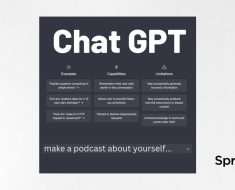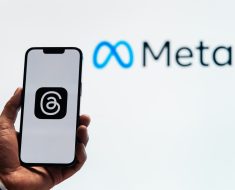
With over 180 million users worldwide as of February 2024, ChatGPT remains at the top of the competition. It doesn’t show any signs of downfall, either. ChatGPT has established itself way too strong in the realm of AI that it almost seems unbeatable, but let me tell you that this doesn’t mean that it’s already the best AI tool you can find, because it’s absolutely not.
In this article, you’ll discover 17 other AI tools that can chat and generate different types of text outputs like ChatGPT (some even do better or more). So, what are these tools?
Other AI Writing Tools Besides ChatGPT
If you’re just looking to use AI for writing, research, analysis, summarization, translation, or other word-based tasks, there are plenty of AI tools in the pool that you can try out. Don’t stick with ChatGPT; here are some of its alternatives:
Claude
This cutting-edge AI companion can assist you in a variety of text-based tasks like ChatGPT and other AI chatbots out there. What makes it greater than ChatGPT and the like, however, is its ability to search and reference sources from the internet. It also sounds less robotic than ChatGPT, too. Claude offers a version that you can use for free and a Claude Pro plan, which you can purchase at $20 per month.
Perplexity AI
This conversational search engine—or “answer engine“—launched in 2022, can answer different types of questions using natural language predictive text. Unlike ChatGPT that’s limited to its training dataset as its own references for the responses it generates, Perplexity AI gives you answers that are based on various online sources, which are a lot more updated than some information that ChatGPT can offer you.
Not only that, but Perplexity AI also allows you to set the focus of your research so you can get more refined sources that are way more relevant to your search queries. You can attach files as well, not only in PDF, but also in image and other text file formats.
Gemini
Formerly Bard, Gemini stands as one of the popular AI chatbots that contest ChatGPT. This conversational AI by Google can take on pretty much anything related to language processing tasks, such as chatting with users, assisting in content writing, research, translation, text analysis, and more.
Provided that it’s integrated with Google, it can also provide you with links where it references the responses it gives you. More than that, this cutting-edge AI tool can also help you with your coding assignments. While it has a premium plan for $19.99 a month with a free two-month trial, you can still definitely use it for free.
Bing Chat
Bing Chat is a proprietary AI-powered chatbot by Microsoft that can help you improve your search experience and get more tailored and better results. This conversational AI is much more powerful than ChatGPT as it can process complex queries and provide you with more accurate, more relevant, and more updated information in no time by leveraging the internet.
To use it though, you need to use the Microsoft Bing search engine in the Microsoft Edge browser (if you don’t have it yet, download it), and sign in to your Microsoft account. Then, you’re good to go—and also, it’s free!
Bloom
Bloom is the largest open multilingual language model that can generate texts in 46 natural languages—such as English, French, Spanish, Arabic, Mandarin, and the list goes on—and write code in 13 programming languages. More than that, it claims to be able to produce human-like content.
Despite the minimal training in particular fields, Bloom can quickly adapt to new tasks, making it a flexible and truly amazing AI model. Bloom offers both a free and a premium plan that costs $33 per month. And if you wonder, Bloom stands for Biologically Localized and Online One-shot Multi-Task Learning.
Character AI
This is pretty much similar to ChatGPT, except it has more personalities.
Character AI is a conversational AI chatbot that can imitate different personalities or characters, may it be a real person or a fictional one. For instance, it can respond to you like Elon Musk or Sam Altman by adapting their personalities. It’s not ideal for work though as its use case obviously leans only toward entertainment and recreational purposes, but it’s nevertheless fun to use and a truly engaging AI chatbot.
Chatsonic
Chatsonic by Writesonic is a superb ChatGPT alternative as it fills the gaps in ChatGPT. Unlike ChatGPT that can’t provide the latest and the most updated information online, Chatsonic has access to real-time data keeping you synced with the most recent trends and news. Not only that, it also supports image and voice searches.
Chatsonic is rich in features so here’s the list of some of them:
- Content creation
- AI art generation using Dall-e and Stable Diffusion
- A free prompt library
- Different personas such as translators, interviewers, and more
- Assistive AI chatbot
- Ability to save and remember past conversations
- Voice recognition
- Search engine optimization
You can use Chatsonic for free, but if you want to get the most of it, you can opt for its paid plans. Below are the different pricing plans you can choose from:
- Small Team: $13 annually and $19 monthly
- Freelancer: $16 annually and $20 monthly
- Enterprise: over $500 both annually and monthly
Chinchilla
Chinchilla is a language model by Deepmind, which is thrice as big as OpenAI’s GPT-3. It has 70 billion parameters and boasts a 67.5% accuracy rate, making it more reliable than ChatGPT. Like other AI chatbots and language models, it can do different writing tasks—both short and long-form content.
Another thing that makes Chinchilla great is its ability to do reasoning, which can help you in decision-making. More than that, it can process large volumes of data quickly without degrading its accuracy. It can also generate sophisticated art using AI. However, since it’s still pretty new, it’s not readily available to the public yet, so it’s not easily accessible yet.
CoGram
CoGram is your AI buddy when you’re attending meetings. This AI notetaker automatically takes notes for you during conferences so you don’t have to, allowing you to focus more on the agenda. It records, transcribes, and summarizes the discussions by providing you with meeting write-ups that include an overview of what happened and a list of action items.
This tool also allows you to sync all the key information to your CRM, so you can easily track your tickets based on the meeting minutes. More than that, it can also be integrated with Google Meet, Teams, and Zoom, which makes it a great tool to get important details from call recordings, webinars, and the like.
CoGram is free for your first fifteen minutes, though. To be able to use it for any longer than that, you will have to get in touch with CoGram’s team.
DeepL Write
This AI writing tool particularly specializes in language translation. However, it can also assist with writing, helping you ensure the quality and accuracy of your content. This tool also helps you prevent plagiarism, checks your grammar, and identifies rooms for improvement in your writing. DeepL Write is free, but it also has the following subscription plans that you can avail:
- Starter: $8.74 annually (30 days free trial)
- Advanced: $28.74 annually (30 days free trial)
- Ultimate: $57.49 annually (no free trial)
DialoGPT
DialoGPT is an AI chatbot that supports multi-turn conversation, which means you can send two or more consecutive messages like you’re just using Messenger or other messaging platforms. Trained on Reddit’s discussion threads from 2005 to 2017, it can respond to you in extremely conversational, engaging, lively, and light-hearted ways—in short, its responses have human-like qualities.
Like Chinchilla, DialoGPT is not easily accessible (at least for now), but you can definitely use it for free. So how do you access it? Just run the code released by Medium in Colab Notebook or connect it to Telegram.
Elicit
This AI research assistant is especially helpful for researchers and students as it primarily focuses on literature review. By using Elicit, you can have relevant studies that you can use for your own paper in a timely fashion, even without paying a single penny—yes, it’s free.
Elicit helps you streamline your research process by giving you the overview of top-rated and reliable documents online—without losing the gist of the content—based on your search query, immediately informing you how they relate to your research even without you reading the whole paper. Besides the search tool, you can also directly use your own paper (must be in PDF) to get relevant research.
ELSA Speak
ELSA Speak, or just ELSA (short for English Language Speech Assistant), is an AI tool that uses a speech recognition system. So what does it do exactly? Elsa can be your personal AI pronunciation coach that can help you improve your English words pronunciation, which comes in handy especially if you’re a non-native English speaker.
Elsa also considers your native language, vocal patterns, English level, and accent to better tailor its lessons to your needs. Apart from helping you improve your pronunciation and fluency in English, it can help you with translation tasks (from different languages to English). This tool can be downloaded, used for free, or with paid subscriptions below:
- ELSA Pro: $19.99 monthly, $58 quarterly, and $141.99 annually (all with 7 days free trial)
- ELSA Premium: no monthly, $68 quarterly, and $169.99 annually (all with 7 days free trial)
Jasper
Jasper is not just another AI writing software tool but is one of the most used ones, which is ideal for the generation of high-quality content in no time. Formerly Jarvis, this tool was trained on billions of data from the internet giving it extensive knowledge on various topics. It can analyze and generate content in over 30 different languages, or simply engage you in a human-like conversation.
While it allows you to use it for free, it also offers different pricing plans (which are quite pricey).
- Creator: $49 monthly and $39 per month annually (both with 7 days free trial)
- Pro: $69 monthly and $59 per month annually (both with 7 days free trial)
- Business: to be discussed with the sales team
OpenAI Playground
Aside from ChatGPT, OpenAI introduces OpenAI Playground, which works like ChatGPT, except it is more technical with more advanced features. This AI chatbot lets you explore and experiment with different functions that are not in ChatGPT, such as temperature (how random the responses you’ll get), number of tokens, etc. It also lets you choose which language model you want to use.
OpenAI Playground can give you responses with great accuracy at high speed for free upon signup, but on limited free credits. Once you run out of credits, you’ll need to avail of its premium subscription to continue using this tool.
Replika
Although AI’s cannot understand human emotions on a profound level at this moment, there is one that can give you emotional support—Replika. This AI companion is like ChatGPT and other AI chatbots but with the ability to show signs of emotional intelligence (though, yes, it’s all artificial since AI doesn’t have its own consciousness) by making its users feel heard—showing that it cares.
Replika is like a pal who can listen to your stories or thoughts and respond to you accordingly. So technically, it’s like chatting with a human friend. Replika can answer your questions, give you tips, relationship advice, or anything you can talk about. Unlike some real people who may not always be there, Replika is just a message away. But like some other real people, it understands you the longer you chat.
Replika is available on iOS, Android, and Oculus and can be used for free. However, if you want to improve your experience, you can buy its pro plan for $14.99 monthly, $49.99 annually, or $299.99 for a lifetime deal.
Socratic
We know that even kids nowadays can already navigate the internet on their own. In fact, they’re becoming much more aware of the advancing technologies than ever before, so much faster than we know. Fortunately, there are AI tools that can benefit users like them academically.
Socratic is an AI-powered schoolwork assistant that particularly caters to students and young users. It provides homework assistance by answering questions related to various school subjects, simplifying concepts, or even solving math problems. Socratic can also give more tailored outputs by allowing the users (which in this case are students) to scan their worksheets or modules unlike in ChatGPT.
Even though it can provide definitions and explanations, Socratic doesn’t encourage academic dishonesty so it can’t generate essays or other types of content that require creativity. Since its target users are students, it offers a free version but for premium features, it offers a plan that starts at $4.99. This tool obviously has a limited use case but is definitely a good package for students or any learners.
So, Which of these ChatGPT Alternatives is the Best?
If I had to pick my top five among these 17 ChatGPT alternatives, I’d personally choose Chatsonic, CoGram, DeepL Write, Elicit, and Gemini.
If we’re only talking about a feature-packed AI tool, then we have Chatsonic taking the first place—it can generate simple responses, write original content, create art, and do more. We also have CoGram that can do more than just taking notes (also summarizes the meeting discussions), and DeepL Write that not only translates texts but also helps you improve your writing.
When it comes to research, I pick Perplexity or Elicit since it supports file upload and summarizes online references other than just providing relevant results based on search queries, and Gemini for its powerful ability to process various language-based tasks (translation, analysis, etc.) besides linking sources in its research responses. The rest are still good alternatives to ChatGPT, but these five are the ones that stand out.
Now, again: Which one is the best alternative to ChatGPT among them all? To give you one answer, I’d say Chatsonic (I’ve already stated the main reason why—it has the best offers). I know some of you have different answers, but after all it depends on what we’re going to use them for and how we think one will benefit us.
So as you reach this part of the article, which of these ChatGPT alternatives do you think is the best and do you know any that haven’t been mentioned here? Feel free to share them with us!





